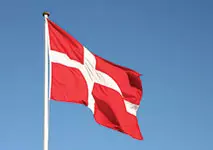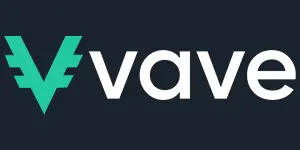Danish Casinos
Want the best online casinos in Denmark? Below is our expert selection of Denmark-friendly casino sites with fast, secure transactions.
Denmark is home to a mature online gambling market whose combined revenue amounted to $1.08 billion in 2023. The online casino vertical accounts for the largest share of these profits, followed by online lotteries and sports betting. In recent years, the Nordic country has been witnessing a pronounced shift in consumer preferences toward remote gambling, largely due to increased accessibility and greater convenience.
Danish players have a decent choice of legal gambling options, including online casino games, sports betting, peer-to-peer poker, bingo, and lotteries. The provision of these activities requires a license from the Danish Gambling Authority (Spillemyndigheden), which also regulates them in digital form under the Danish Act on Gambling. The local watchdog has handed licenses to over 40 remote sportsbooks and casinos at the time of publication, including some of the biggest brands in the iGaming industry.
On this page, readers will find overviews of the best online casinos currently catering to players from Denmark, alongside extensive regulatory and licensing information. The most common deposit methods used by Danish players and the popular types of games they will encounter at online casinos are also covered in this article, so let’s dive right in.
Denmark’s Stance on Online Gambling
 Five years ago, the state-owned Danske Spil was the only company within Denmark that had been issued a license allowing it to offer casino games and sports betting services to Danish residents. All foreign gaming operators were barred from providing players in the country with real-money gambling services. License applications from international operators were not accepted, either. This left Danish players with an extremely limited number of legal gambling options. Nevertheless, many international gambling providers accepted wagers from Danes and catered to their needs by offering websites that supported the Danish language as well as payment methods suitable for players from the country.
Five years ago, the state-owned Danske Spil was the only company within Denmark that had been issued a license allowing it to offer casino games and sports betting services to Danish residents. All foreign gaming operators were barred from providing players in the country with real-money gambling services. License applications from international operators were not accepted, either. This left Danish players with an extremely limited number of legal gambling options. Nevertheless, many international gambling providers accepted wagers from Danes and catered to their needs by offering websites that supported the Danish language as well as payment methods suitable for players from the country.
However, since Denmark is a member state of the European Union, the European Commission intervened, forcing the country to take its first steps toward market liberalization. In 2008, the European Court of Justice addressed the issue and challenged the state monopoly established by Danske Spil. A new piece of legislation, known as the Danish Act on Gambling, was drafted to allow foreign gambling operators to apply for local licenses.
The process of opening the Danish market was by no means quick or easy. The first draft of the legislation that was to liberalize the market was released in 2010 but met with strong opposition from Danske Spil and the land-based casinos operating in the country. The land-based companies were dissatisfied with the fact that the new legislation proposed lower taxes for licensed online gambling providers. The draft stipulated that taxes on land-based casinos should start at 45% of their gross revenue, while those imposed on online gambling operators were significantly lower at 20% of gross gaming revenue and 28% for corporate taxes.
The European Commission once again stepped in and ruled in favor of the proposed taxes, which helped the liberalization of the Danish gambling market move forward. As of 2012, the Danish Act on Gambling was officially enforced. The same year saw the establishment of the Danish Gambling Authority, locally known as Spillemyndigheden, which is responsible for the supervision, regulation, and licensing of gambling operators in the country.
Online gambling operators interested in offering their services to residents of Denmark are now required first to obtain a license from the Danish Gambling Authority. So far, this regulatory body has issued over twenty licenses to international gambling operators, including industry heavyweights such as bet365, 888, and bwin. Several unlicensed and therefore unauthorized operators have already been blacklisted. What is more, the Danish government has the authority to instruct financial institutions to block transactions to and from online casinos that have been added to the blacklist.
Web-based gambling providers interested in operating in Denmark can apply for several types of licenses – for sports betting, virtual casino games, and online poker. The new legislation works to the advantage of poker players especially, since it allows regulated poker platforms to pool Danes with fellow poker players from across the world. This is not the case in some European countries where tournament participants are allowed to sit at tables with players from their own country only.
However, there are still a great number of online gambling providers that accept players from Denmark without having a license from the local authorities. Most operators enable players to load the websites in their native language and choose from a wide range of convenient payment methods that support DKK as a currency.
Most Popular Danish Online Casinos
Identifying the best online casinos is no picnic, as multiple factors should govern your choice, including software and range of games, withdrawal speed, accepted payment methods, mobile compatibility, licensing, and overall reputation in the iGaming community. We have considered all these and more during our extensive vetting process to deliver this unbiased curation of the top 5 gambling sites that accept real-money players from Denmark. Browse the list and read our brief overviews to find the Danish casinos that best suit your individual preferences.
-
Videoslots Casino
Videoslots Casino unfolds a world where Danish players can explore over 7,000 casino games supplied by a multitude of innovative software developers. This immense variety underlines the casino’s commitment to providing an unrivaled gaming experience, all accessible on a platform licensed by the Danish Gambling Authority.
Website videoslots.com Licenses Malta Gaming Authority, UK Gambling Commission, Swedish Gambling Authority, AAMS Italy, Alcohol and Gaming Commission of Ontario, Danish Gambling Authority Year Established 2011 Support Channels se.support@videoslots.com Available Bonus 100% up to 2,000 SEK welcome bonus Compatibility Android, Apple, Windows Deposit Methods Payz, Mastercard, Neteller, Paysafecard, Visa, Neosurf, Trustly, Skrill, Direct Bank Transfer, Siru Mobile, Zimpler, Interac, Flexepin, Voucher, Bank Wire Transfer, Klarna Instant Bank Transfer, Instant Bank Transfer, Apple Pay, CashtoCode, Citadel Instant Banking, Giropay, InstaDebit, JCB, MiFinity, MuchBetter, PayPal, Rapid Transfer, SMS, Venus Point, Payforit Withdraw methods Bank Wire Transfer, Mastercard, Neteller, InstaDebit, Visa, Payz, Skrill, Trustly, Swish, Interac, JCB, Klarna Instant Bank Transfer, MiFinity, MuchBetter, PayPal, Paysafecard, Rapid Transfer, Venus Point, Zimpler Danish aficionados of online gaming will find themselves at home with Videoslots Casino, with its offerings catering specifically to their needs. Besides the broad gaming selection, players from Denmark can enjoy targeted promotions, a user-friendly interface in Danish, and support for local payment methods, ensuring a seamless and engaging gaming journey.
For players in Denmark seeking a comprehensive and thrilling casino experience, Videoslots Casino stands out with its bountiful Welcome Bonus and recurring offers, extensive gaming library, and robust customer support. Its reputation for fairness and security, coupled with a license from the Danish Gambling Authority, makes it a top choice for Danish casino enthusiasts looking for a vast selection of games and generous bonuses.
Pros- Extensive game library with over 6,500 titles
- Diverse payment options with over 30 methods
- Robust responsible gambling tools
- Collaboration with over 100 software providers
- Accepts Swedish krona for direct transactions
- Offers popular progressive jackpot slots
- High withdrawal limits
- Has been enjoying an excellent reputation since 2011
Cons- Charges fees for multiple withdrawals in a single day
- Numerous geographical restrictions
- Slightly outdated website design
- Offers lower RTP games in some regions
-
PlayOJO Casino
PlayOJO Casino boasts a vibrant and extensive gaming library, featuring titles powered by more than 20 distinguished software developers. Danish enthusiasts can access this treasure trove of entertainment on playojo.dk, ensuring a seamless and regulated gaming experience supervised by the Danish Gambling Authority’s supervision.
Website playojo.com Licenses Malta Gaming Authority, UK Gambling Commission, Danish Gambling Authority, Swedish Gambling Authority, Alcohol and Gaming Commission of Ontario Year Established 2017 Support Channels Support@playojo.com Available Bonus Welcome Bonus: 50 Free Spins on First Deposit (no wagering required) Compatibility Android, Apple, Windows Deposit Methods Bank Wire Transfer, Payz, Maestro, Mastercard, Neteller, PayPal, Paysafecard, Visa, Sofort, Fast Bank Transfer, Trustly, Skrill, Instant Bank Transfer, Apple Pay Withdraw methods Bank Wire Transfer, Maestro, Mastercard, Neteller, PayPal, Paysafecard, Visa, Sofort, Wire Transfer, Payz, Fast Bank Transfer, Skrill, Trustly, Instant Bank Transfer, Apple Pay Danish players can immerse themselves in PlayOJO’s dynamic world, where a no-wagering requirements bonus policy makes the casino stand out from its competitors. This unique approach means that all wins from bonuses are paid in cash, making it a favorite among Danish gamers. Additionally, PlayOJO’s commitment to fairness is mirrored in its transparent policies and the OJOPlus feature, which gives money back on every bet.
With an emphasis on player satisfaction, PlayOJO caters to the Danish market with a user-friendly interface and support in multiple languages, including Danish. The casino’s diverse gaming selection, innovative bonus system excluding wagering requirements, and robust customer support make it a top choice for players seeking a refreshing online casino experience in Denmark.
Pros- No Wagering Requirements: Offers bonuses without playthrough conditions, a rare find in the online casino world.
- Quick Withdrawal Timeframe: Processes withdrawals within 0-24 hours.
- Round-the-Clock Live Chat: Customer support is available 24/7.
- Wide Game Selection: Hosts an extensive range of games from top software providers.
- Player Rewards: Returns money on every bet, win or lose.
- Mobile Optimization: Features a mobile-friendly design for gaming on the go.
- Regulatory Approvals: Holds licenses from multiple esteemed authorities, ensuring compliance and security.
Cons- Support Access: Requires registration for support services.
- Live Chat Response: May experience slow response times.
-
888casino
At 888casino, Danish players are welcomed into a realm where an expansive array of casino games is provided by a diverse mix of software providers. This globally recognized platform is tailored to meet the preferences of Danish players who can access the casino through 888casino.dk, which operates under a license from the Danish Gambling Authority.
Website 888casino.com Licenses Gibraltar Regulatory Authority, UK Gambling Commission, MGA, Alcohol and Gaming Commission of Ontario, Ireland's Revenue Commissioners, Sweden, Danish Gambling Authority, Italy, Spain, Portugal Year Established 1997 Support Channels support@888casino.com Available Bonus Welcome Bonus: $25 No Deposit Bonus Compatibility Android, Apple, Windows Deposit Methods Bank Wire Transfer, Payz, MasterCard, Neteller, PayPal, Paysafe Card, instaDebit, Visa, Sofort, Boleto, QIWI, Trustly, Skrill, AstroPay Card, WebMoney, iDebit, MuchBetter, Apple Pay, Rapid Transfer, Bitcoin, Interac, iWallet, Online Bank Transfer, Neosurf, EPS, Pix Withdraw methods Bank Wire Transfer, MasterCard, Neteller, PayPal, Visa, Wire Transfer, Payz, QIWI, Skrill, WebMoney, iDebit, MuchBetter, Rapid Transfer, Trustly, Pix, Interac For players based in Denmark, 888casino unfolds a world of entertainment with its wide-ranging game portfolio, including live dealer options and a multitude of slot machines. Beyond the extensive gaming options, Danish players benefit from localized support, payment methods suited to their needs, and exclusive bonuses designed to enhance their gaming journey.
The brand 888casino stands as a beacon for Danish casino enthusiasts, offering not just a vast selection of games but also a secure and regulated environment. With its commitment to fairness and responsible gaming, along with attractive promotions and bonuses tailored to suit Danish players, 888casino ensures a premium online gaming experience for all its members.
Pros- Renowned Providers: Hosts games from top software developers like NetEnt, Playtech, and Pragmatic Play.
- Diverse Payment Options: Supports a wide range of deposit and withdrawal methods, including cryptocurrency.
- Mobile Compatibility: Offers games that are fully optimized for mobile devices.
- eCOGRA Certification: Ensures fair play and high payout rates, reported at 96%+ for all games combined.
- Extensive Experience: A trusted name in online gaming since 1997.
Cons- Limited Live Chat: Live chat support is only available for registered members.
- Country Restrictions: Faces multiple country restrictions, limiting access for players in certain regions.
- Bonus Requirements: Table games contribute minimally to meeting bonus wagering requirements.
-
Casino Action
Casino Action invites Danish players to immerse themselves in a world where they can choose from a broad spectrum of games, powered by some of the best software providers in the iGaming sector. Licensed by the Danish Gambling Authority, Casino Action offers Danish players access to a rich variety of gaming experiences available at the casinoaction.dk domain.
Website casinoaction.com Licenses Malta Gaming Authority, Kahnawake Gaming Commission, UK Gambling Commission, Danish Gambling Authority Year Established 2000 Support Channels support@casinoaction.com Available Bonus - 1st Deposit - 100% Match Bonus up to $150
- 2nd Deposit - 50% Match Bonus up to $200
- 3rd Deposit - 25% Match Bonus up to $500
- 4th Deposit - 50% Match Bonus up to $250
- 5th Deposit - 100% Match Bonus up to $150
Compatibility Android, iOS, Windows, MacOS, Linux Deposit Methods ClickandBuy, Payz, Kalibra Card, Maestro, Mastercard, Neteller, PayPal, Paysafecard, Postepay, Ukash, instaDebit, e-wire, Visa, Entropay, Przelewy24, Nordea, POLi, Giropay, EPS, Abaqoos, Swedbank, eKonto, Ticket Premium, Euteller, u net, Neosurf, Multibanco, eCheck, Trustly, Skrill, Envoy, iDEAL, iDebit, PugglePay, QIWI, Sofort, Bank Wire Transfer, Instant Bank Transfer Withdraw methods ClickandBuy, Kalibra Card, Maestro, Neteller, PayPal, Postepay, Visa, Entropay, eCheck, Skrill, Payz, Mastercard, Bank Wire Transfer With Casino Action, Danish enthusiasts have access to an impressive array of over 550 games. From engaging slot machines to the strategic depths of blackjack and instant win games, members of Casino Action will have the opportunity to explore a wide range of titles masterfully crafted by Microgaming, ensuring a high-quality gaming session. Evolution Gaming elevates the live casino section, offering an unparalleled real-time casino experience with live dealer table games and fun live game shows.
For players in Denmark, Casino Action is not just a gaming site but a comprehensive entertainment platform. For its operations outside Denmark, it boasts rigorous licensing through the UK Gambling Commission and the Malta Gaming Authority, affirming its commitment to safety and fairness. Enhanced with cutting-edge SSL encryption for secure transactions, Casino Action provides Danish players with a secure and thrilling casino adventure.
Pros- Vast Microgaming Selection: The wide range of Microgaming slots ensures variety and quality.
- Robust Support: 24/7 live chat, toll-free phone support, and email, ensuring help is always accessible.
- eCOGRA-Certified: Games are certified for fairness, giving players peace of mind.
- Multiple Licenses: Licensed by several authorities, indicating a high level of regulation and safety.
Cons- Withdrawal Waiting Period: All withdrawals undergo a 48-hour pending period, delaying access to funds.
- Country Restrictions: Despite no explicit restrictions, numerous country-specific limitations apply, particularly in bonus eligibility.
-
Betfair Casino
Betfair Casino provides Danish players with an extensive array of casino games, running on the software platform of the juggernaut Playtech. The full selection of games is accessible on betfair.dk, which operates under the watchful eye of the Danish Gambling Authority. This blend of variety ensures a broad gaming spectrum for every player’s preference.
Website casino.betfair.com Licenses Malta Gaming Authority, UK Gambling Commission, Swedish Gambling Authority, Danish Gambling Authority Year Established 2000 Support Channels No email available / follow and tweet @BetfairCS Available Bonus 100% up to $100 Deposit Methods Maestro, MasterCard, Neteller, PayPal, Solo, Visa, Western Union, Bank Transfer Express, Skrill, QIWI, WebMoney Withdraw methods Neteller, PayPal, Visa, Bank Transfer Express, Skrill, QIWI, Apple Pay, WebMoney As for the live casino offerings available at Betfair, the brand has taken the excitement level up a notch, presenting Danish enthusiasts with live dealer games like Buffalo Blitz and Football Roulette alongside classics such as European Roulette and Blackjack. This rich selection is complemented by seamless HD streaming, bringing the authentic casino vibe right to players’ screens.
For players in Denmark, Betfair Casino has proven to be a beacon of gaming diversity as well as a hallmark of secure and responsible gaming, fully backed by robust licensing. With an impressive experience in the online casino world, Betfair continues to cater to a wide array of gaming tastes and preferences, further contributing to the experience by offering great customer support and a secure gaming environment.
Pros- Quick withdrawal timeframe of 0-24 hours.
- High withdrawal limits accommodating big wins.
- Mobile-friendly design enhancing gaming on the go.
- Holds licenses from prestigious authorities for added trust and security.
Cons- Support requires registration to use, potentially hindering pre-signup inquiries.
- Not available to players in the United States, limiting its accessibility.
Spillemyndigheden – the Danish Gambling Authority
As mentioned previously, the Danish Gambling Authority was founded right after the Danish Act on Gambling came into effect. This governmental body regulates the majority of gambling forms in the country and issues licenses to foreign gambling providers that wish to offer their services to Danish residents.
International companies can apply for two types of licenses. Type A licenses are valid for online sports betting services, while Type B licenses cover virtual casino games and poker. These licenses are not transferable and need to be renewed every five years.
There are a number of requirements operators must meet in order to obtain a license from the Danish Gambling Authority. For instance, players’ funds should be kept in a separate, secure bank account, while the casinos’ accounting system must be available for audits at all times and should be updated daily.
Another condition dictates that the operators’ software must be up to par with the technical standards outlined by the Danish Gambling Authority. The available games should be tested for fairness and randomness by accredited testing agencies. Before operators are granted a license, they need to provide proof of their compliance with the Appropriate Financial Operation Regulations of the Danish Gambling Authority.
Taxes Imposed on Online Gambling in Denmark
The good news for Danish players is that no taxes are imposed on the winnings they generate when betting online, regardless of the amount won. However, this is not the case for licensed gambling operators. All operators approved by the Danish Gambling Authority are required to pay a license fee of DKK250,000. This applies to a single license. Companies that apply for both Type A and Type B licenses are subject to a fee of DKK350,000.
Since the licenses are valid for five years, licensees must pay an annual fee that depends on their yearly revenue and varies anywhere between DKK50,000 and DKK1,500,000. Companies operating on Danish territory are also subject to a 28% corporate tax rate, plus a 20% tax on their gross gaming revenue.









